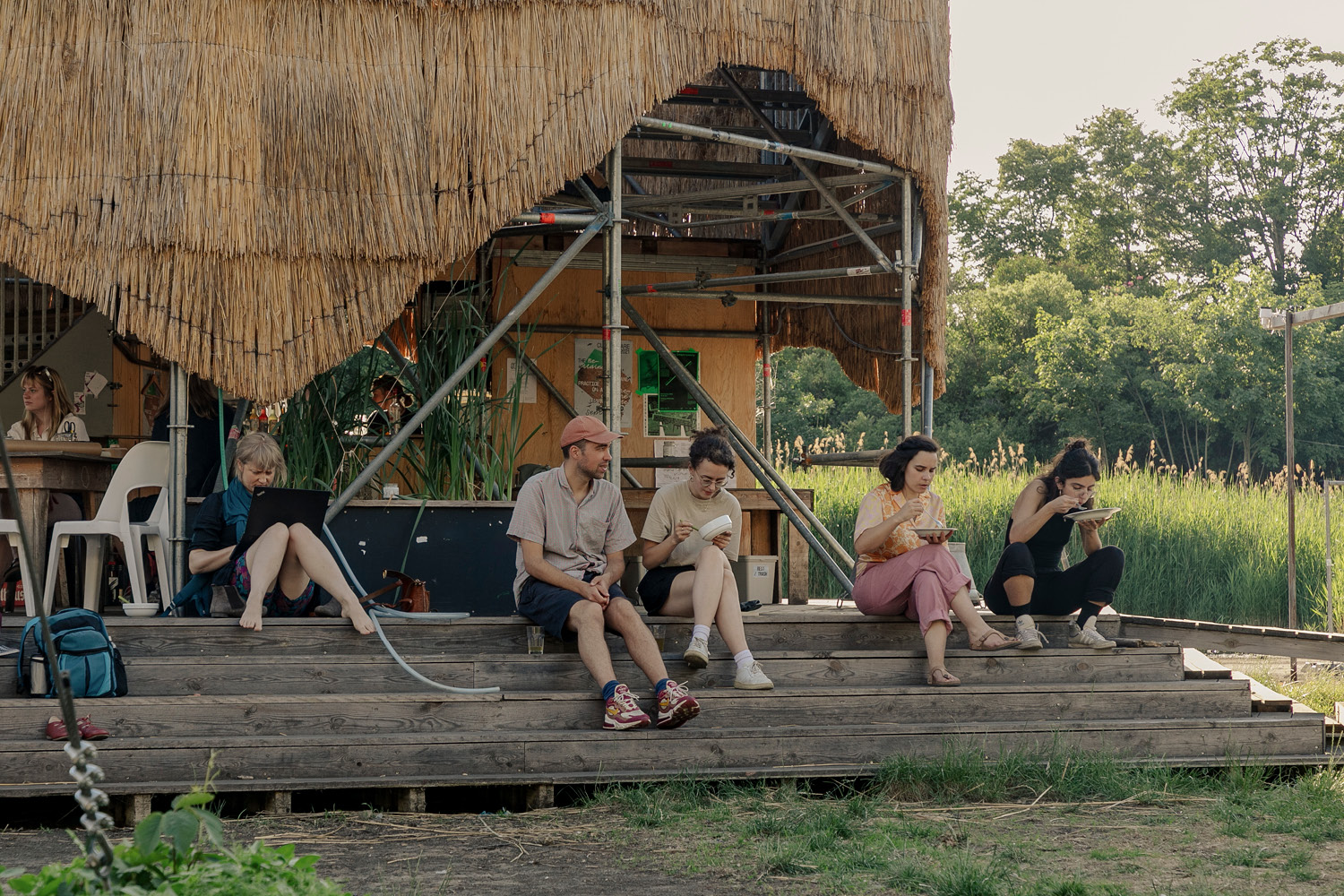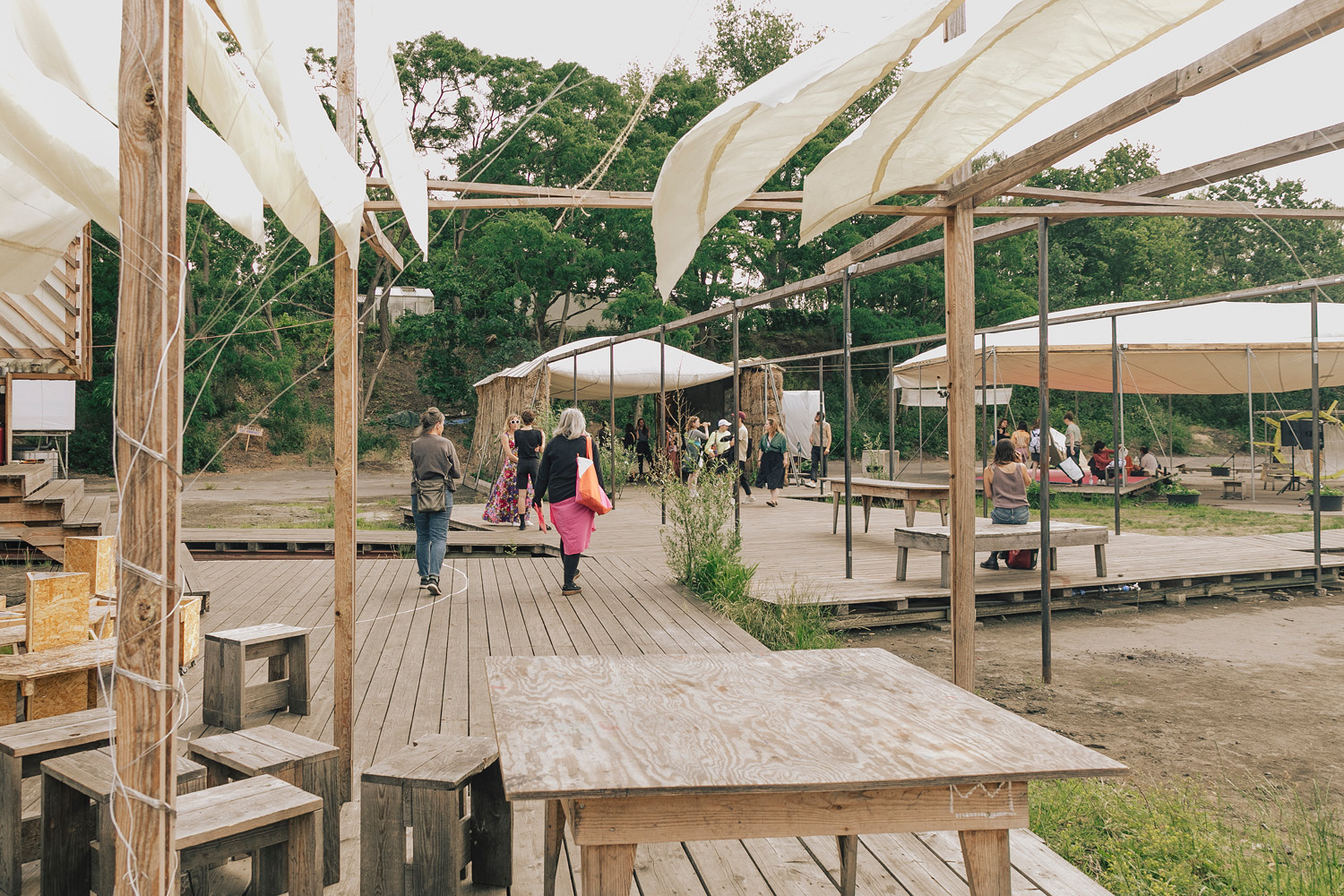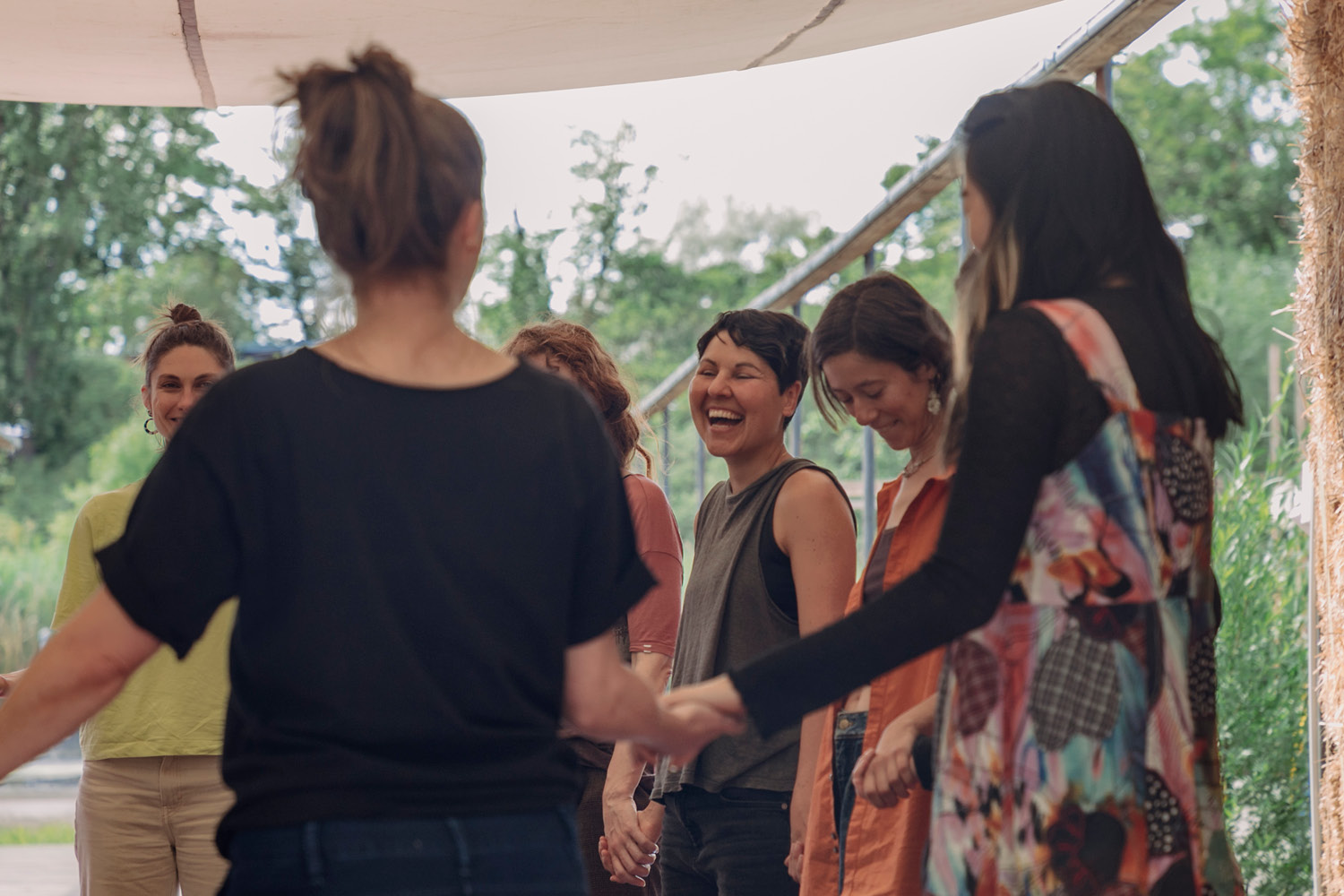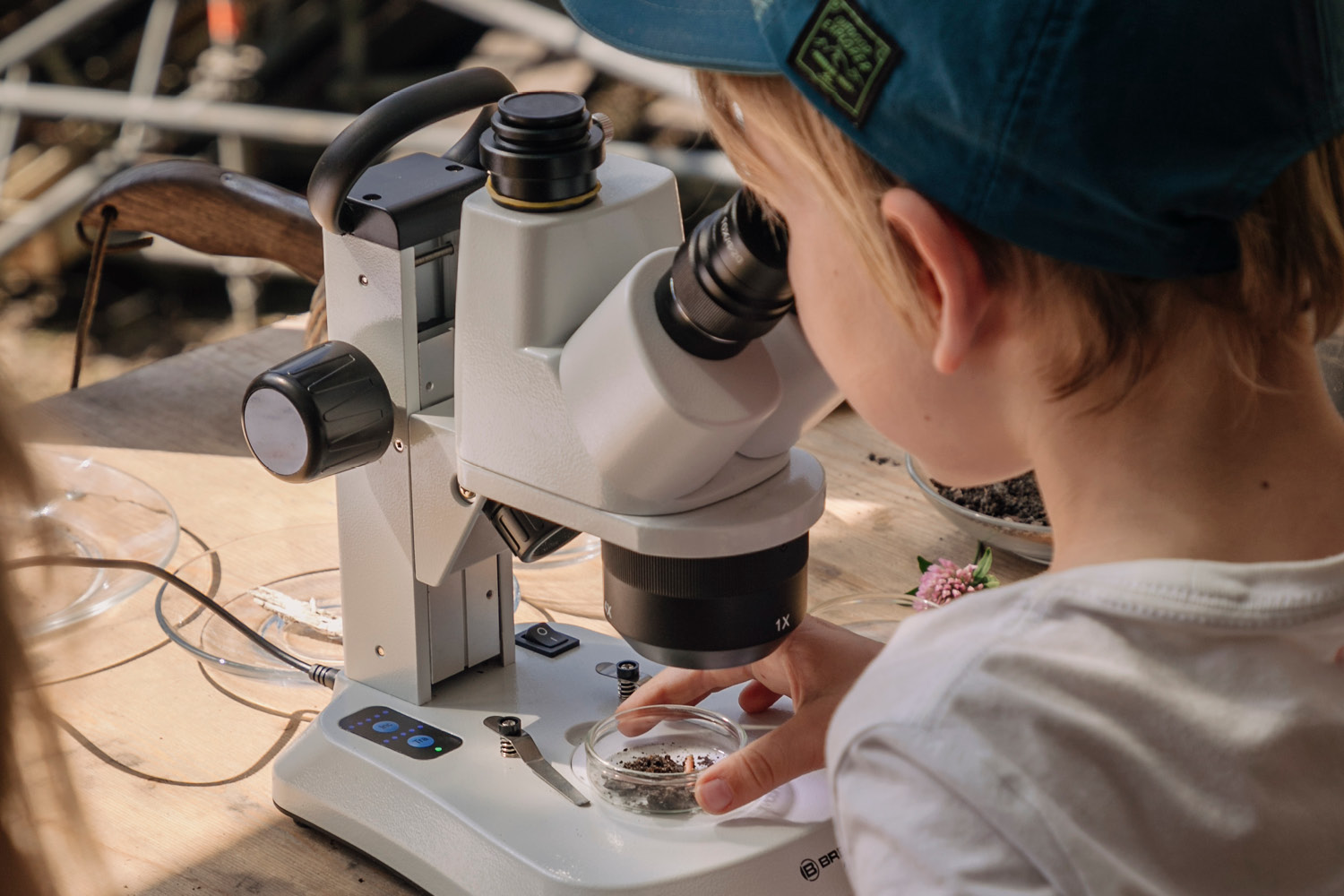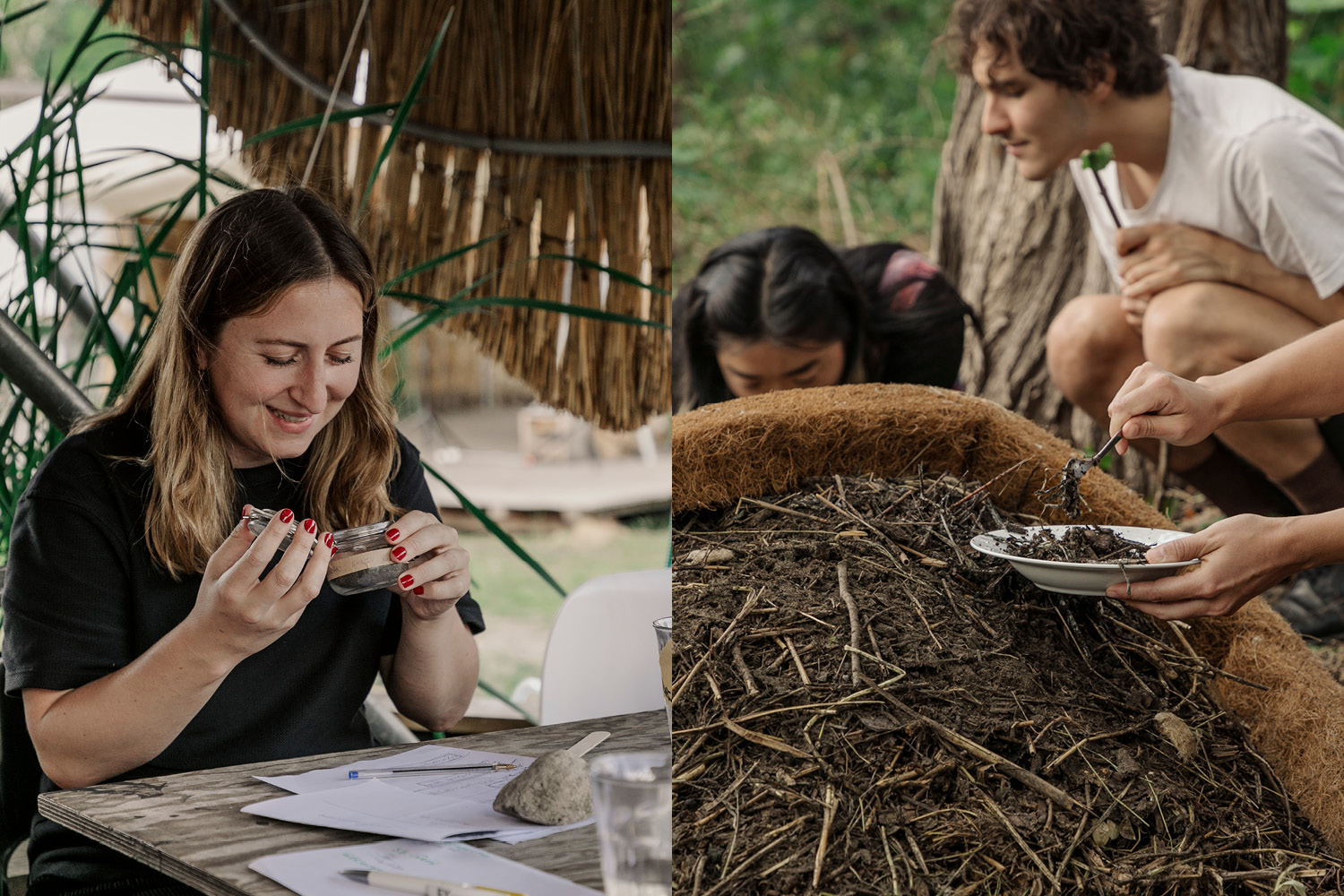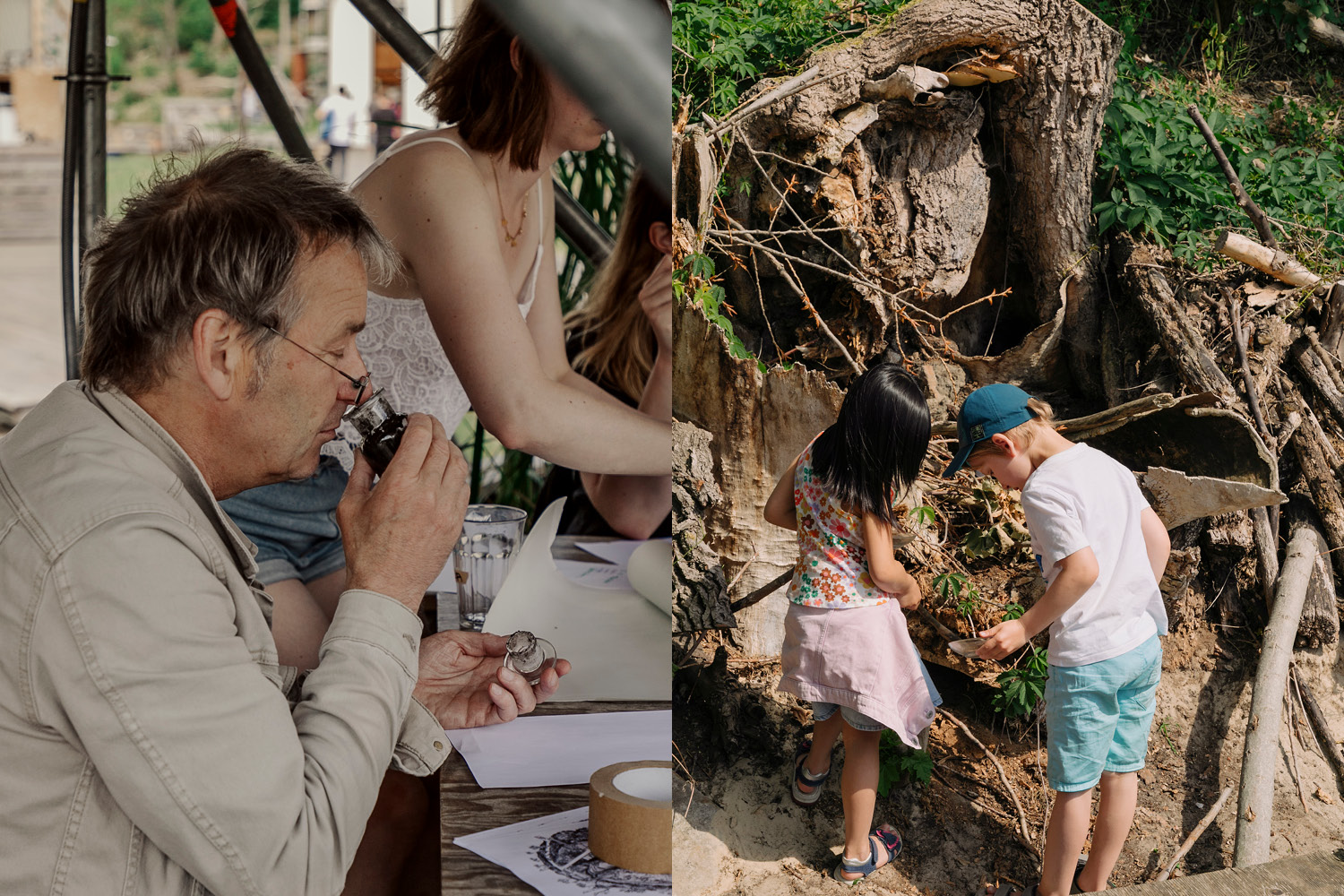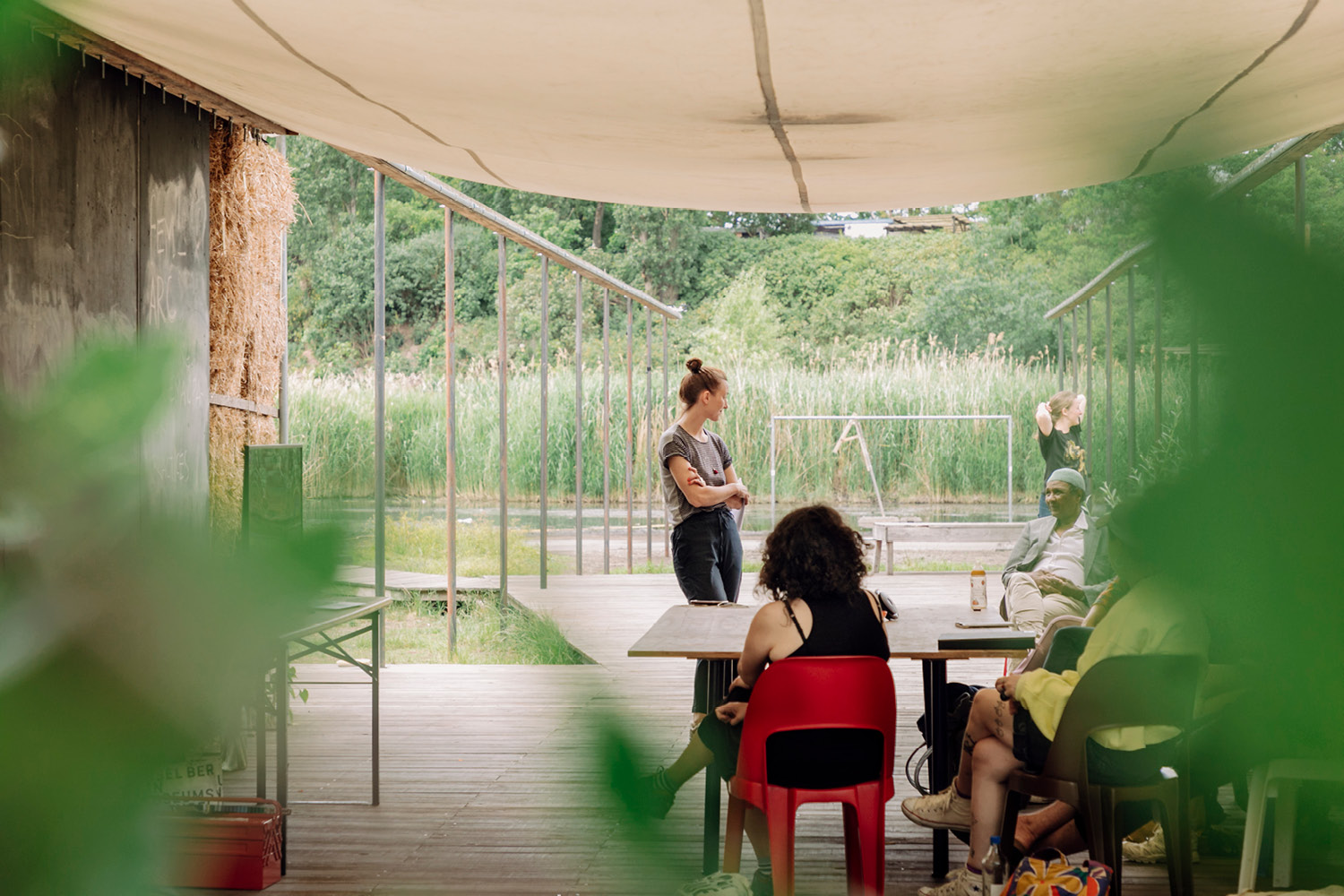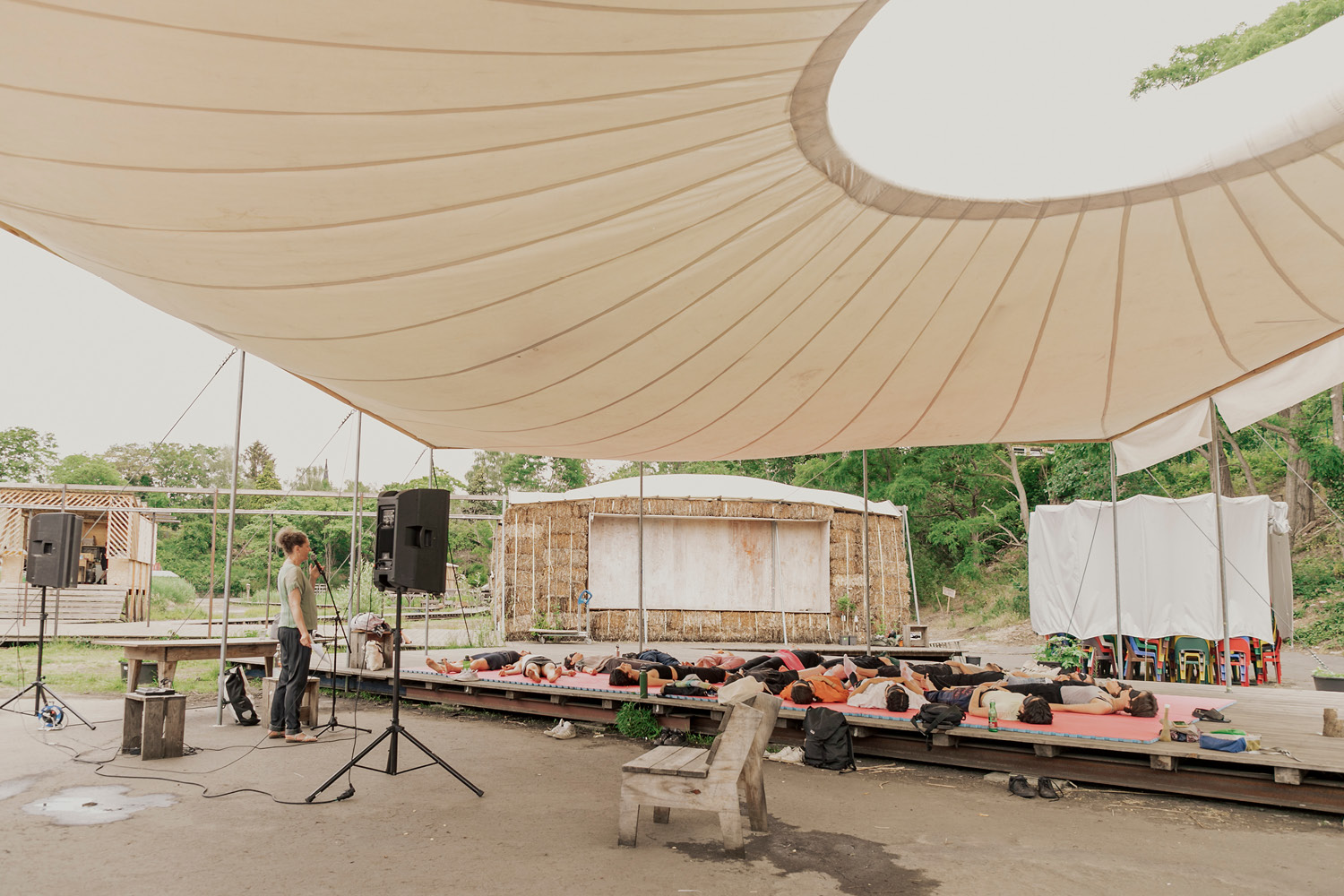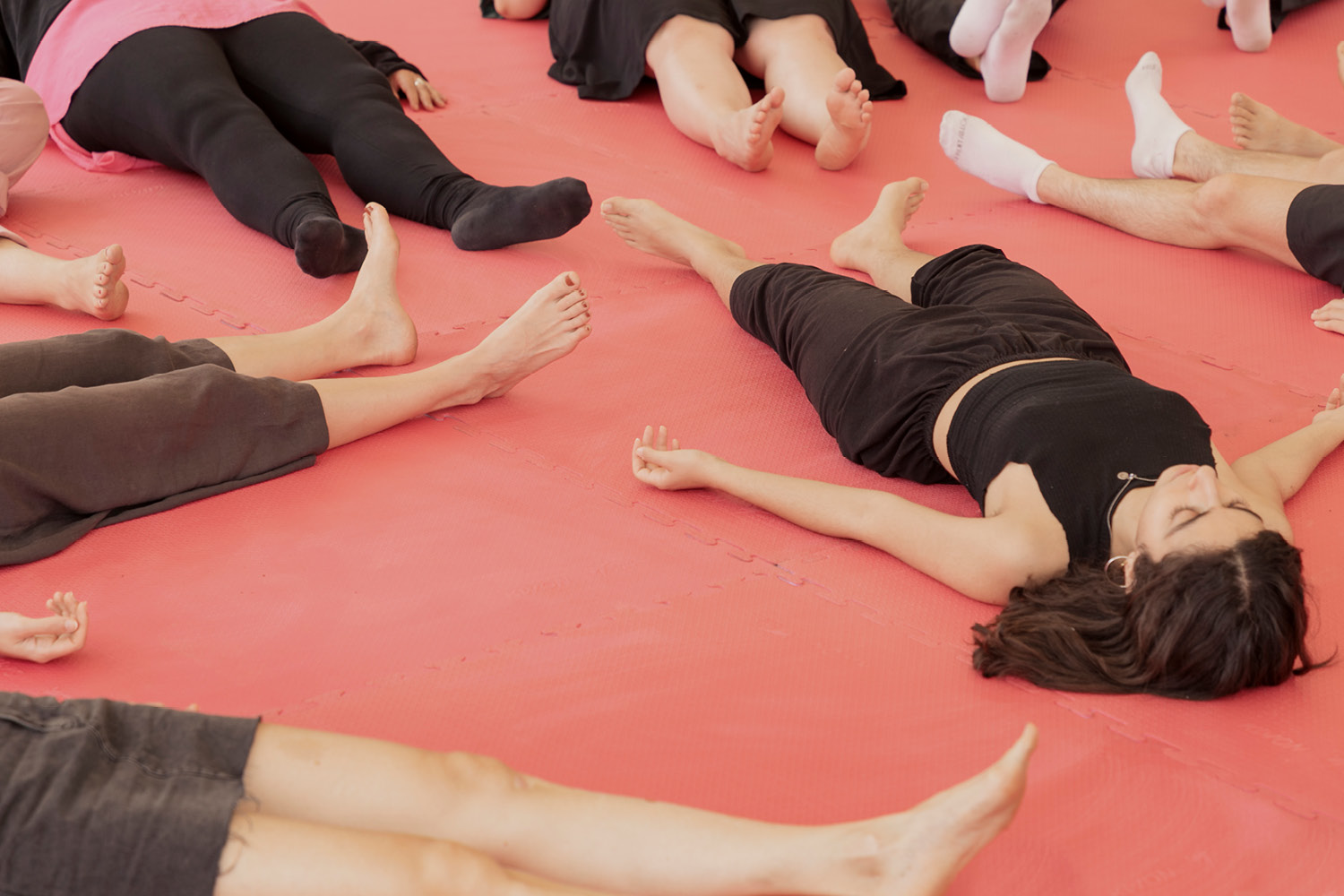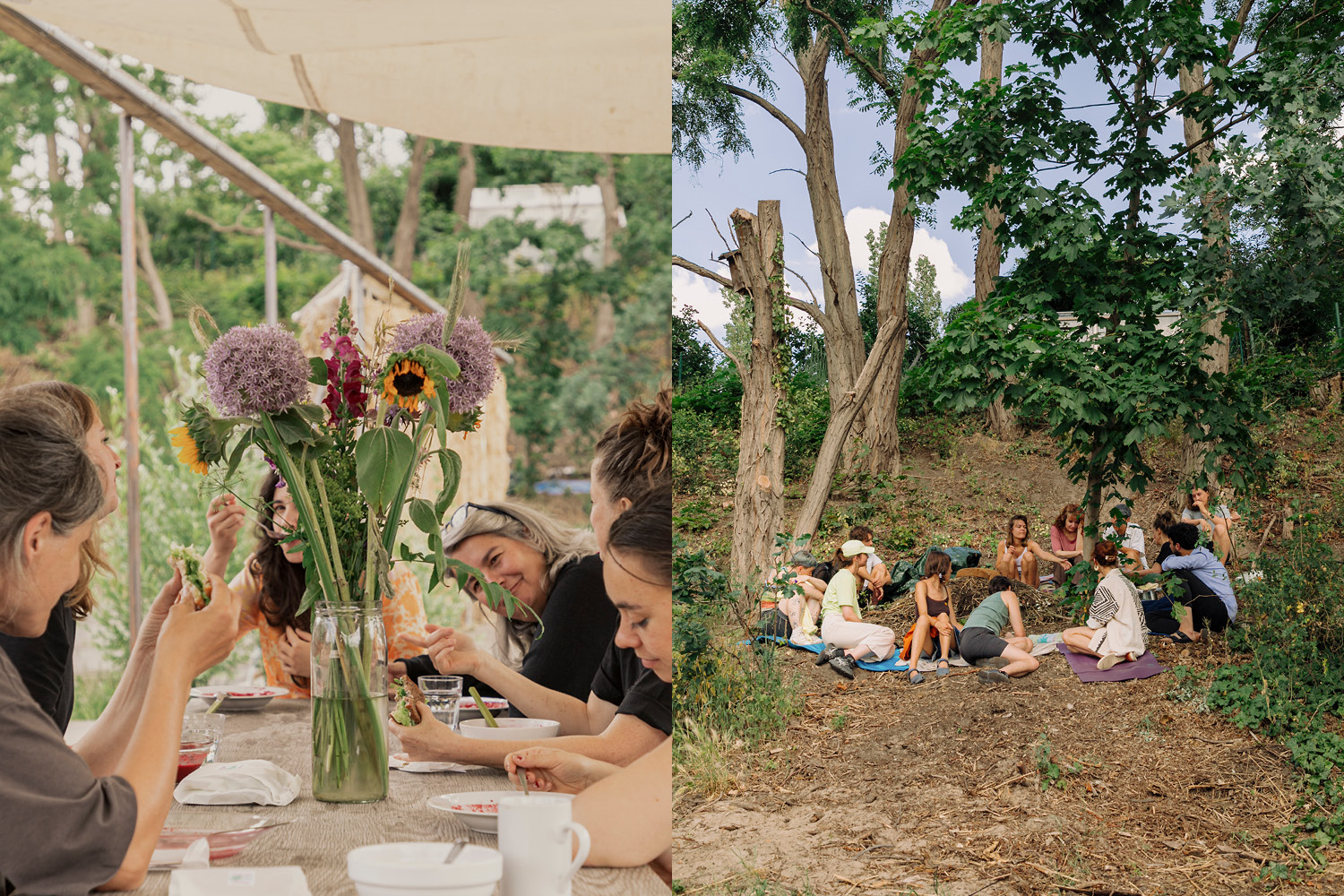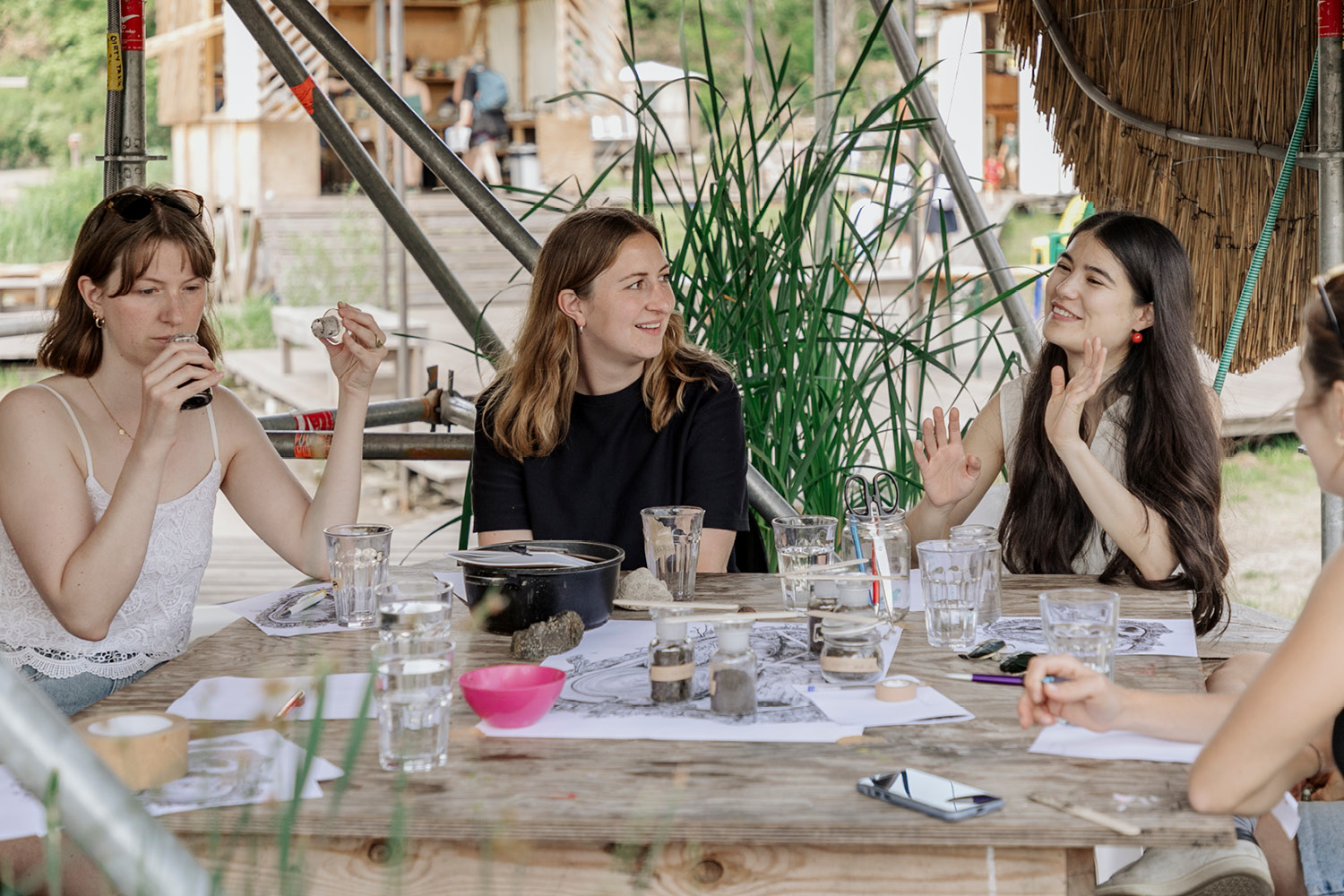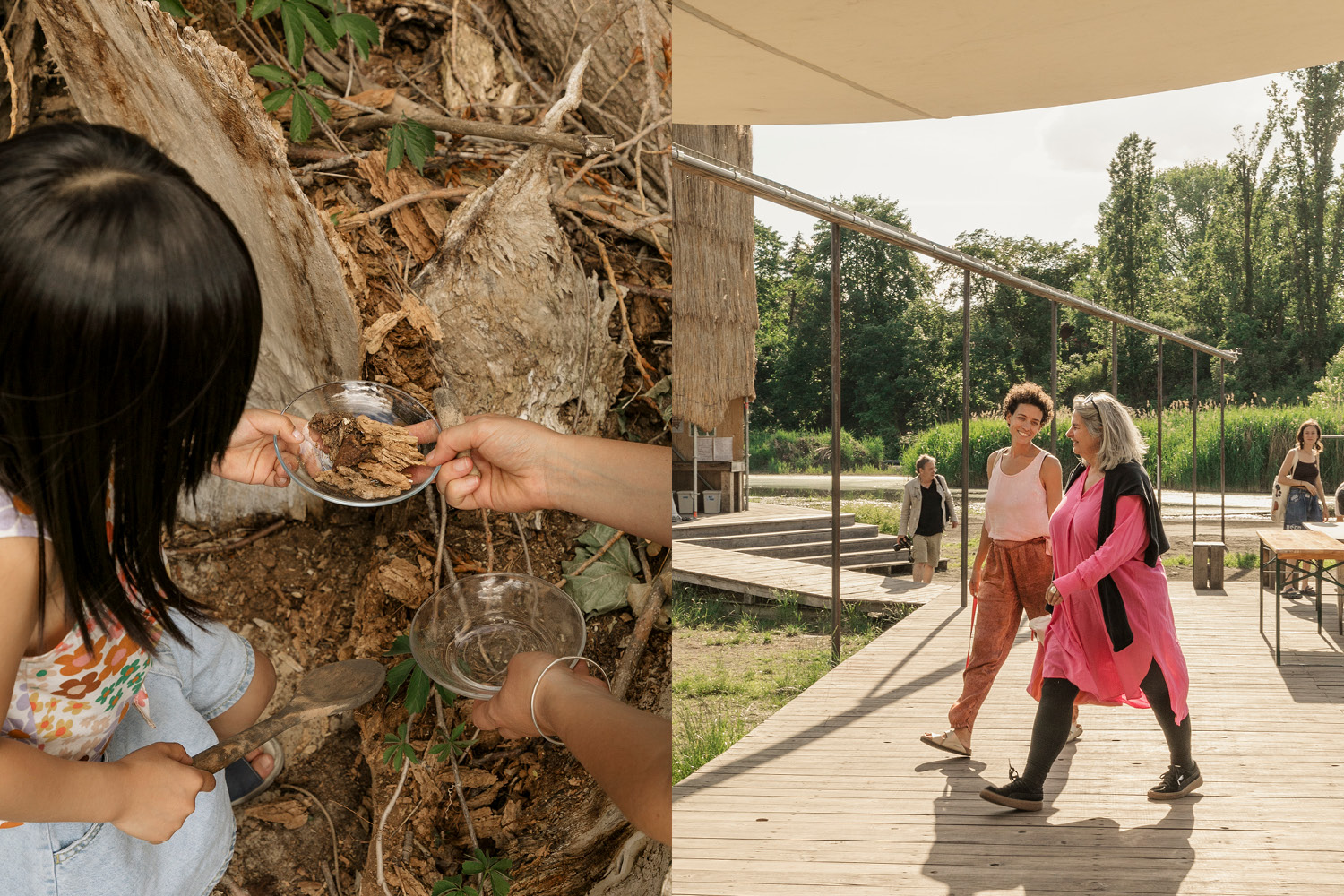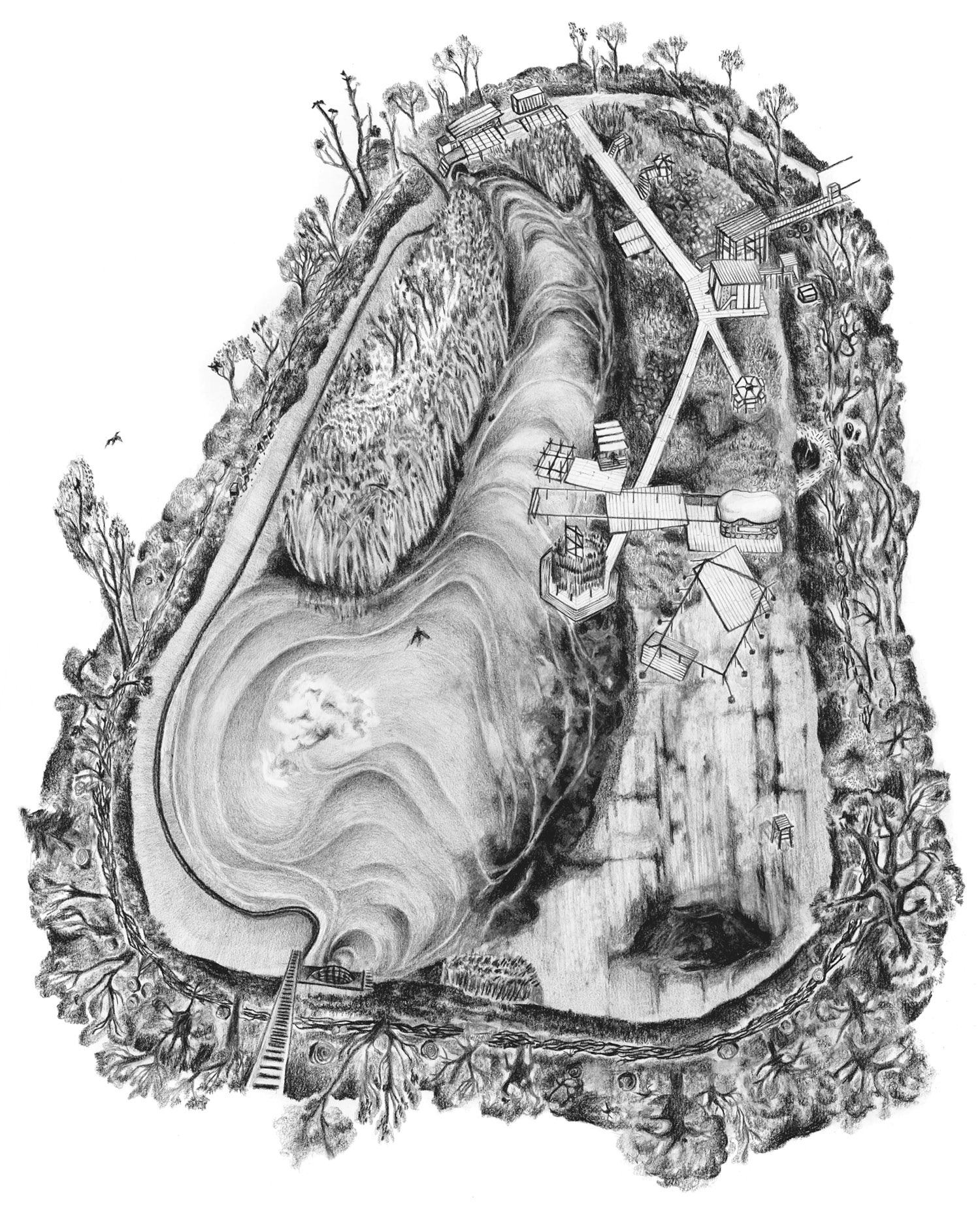Open Soil Day
Curated by Martina Kolarek
#1 Soils and Senses
12. Juni 2022
In Earth
INTRODUCTION
Open soils are in direct contact with water bodies, the air and their subsoil, the solid rock. They are complex habitats out of organo-mineral structures and an immense diversity of living organisms in the upper soil horizons, largely unknown even to natural scientists. Analytically, their bodies cannot be determined separately from the soil, nor can the mineral processes and structures be separated from the biological ones. Although we know that all life depends on the regenerative processes in soils and they accommodate high biodiversity, soil organisms usually do not appear in environmental analyses, models, concepts, instruments and technologies.
At our first Open Soil Day at the Floating University, we will present and discuss the results of our soil analysis for selected contaminants and offer our visitors the opportunity to connect with the different soils on site through their senses. How can we connect with them, rethink, smell, see or even taste them? And will this help us to find a fruitful way of dealing with the soils of this world on a scientific, political and economic level?
PROGRAM
12. Juni
Thinking with Soil
11–13h (EN)
What can Soil tell us about ourselves and our surroundings if we see it as an active participant? In this workshop we connect two distant cities – Johannesburg and Berlin – through the digital and their earths. A practical exercise in close looking at what lies underneath our feet and the historical, cultural and social significance of Soil.
Io Makandal is an artist and researcher based in Johannesburg. Her practice is concerned with feminist embodiments, plantscapes and urban ecology.
iomakandal.com
Nisha Merit vC is a curator in Johannesburg and Berlin. Her practice is based on Care, concerned with the processes of art and its knowledges.
instagram.com
Encounter with Another Camille
12–13h (EN)
Cover your eyes and allow yourself to fall into a state of trance to meet a symbiotic Camille inspired by Donna Haraway´s The Camille Stories: Children of the Compost. This Camille is the hunter that takes care of the entrance to the magic world. And you let yourself be guided to that magic world by Katharina Auer.
Valeria Schwarz is an artist, curator, cultural mediator and mother. Her works are influenced by speculative fiction and ideas of common welfare.
valeriaschwarz.com/
Radical Empathy Lab – The Soil Encounter
14–17h (EN)
In this trans-species encounter we will experiment to create an inclusive and sensual awareness for our fellow soil microorganisms. Playfully we’ll experiment to re-awaken our innate sensing nature, to move from a human-centred towards a more earth-bound mindfulness and presence by methods like Deep Listening, radical and feminist pedagogies. Come in comfy clothes, bring something to sit on.
RADICAL EMPATHIE LAB was founded as a nomadic socio-ecological research lab by artist, curator, and scholar Berit Fischer.
beritfischer.org
Verschmutzungszeichen
14-18h (DE+EN) ab 7 Jahren
Letztes Jahr haben wir herausgefunden, mit welchen Stoffen Wasser und Boden in der Floating University belastet sind. Das wollen wir vor Ort für alle sichtbar machen. Gemeinsam entwickeln wir in diesem Workshop einfache Zeichen für die belastenden Stoffe und übertragen sie auf Schilder, die wir im Gelände gut sichtbar für alle Besucher:innen aufstellen.
Ute Lindenbeck ist Bühnen- und Kostümbildnerin und arbeitet seit 2017 im Bereich Kulturelle Bildung.
utelindenbeck.de
Jade Dreyfuss ist Künstlerin, Fotografin und Illustratorin.
Instagram
Sensitiver Workshop – Open Mic Session “Life in Earth”
14-18h (DE+EN)
In der Open Mic Session „Life in Earth“ begleiten wir Organismen, die in den Böden des Regenrückhaltebeckens leben. In vielfacher Vergrößerung sehen wir, wie sie die mineralischen Kristalle in ihrem Lebensraum bewegen und die Erde zum Atmen bringen. Wir aktivieren unsere Sinne und lernen das Leben (in) der Erde neu kennen.
Lorène Blanche Goesele ist Architektin und Fotografin. In ihrer künstlerischen Praxis gestaltet sie Begegnungen zwischen dem mehr-als-menschlichen und menschlichen Leben im urbanen Raum.
Der Duft der Erde
14-18h (DE+EN)
Wie riecht der Schlamm, der vom Tempelhofer Feld ins Regenrückhaltebecken gespült wird und wie der Kompost am Beckenrand? Welche Worte und Formen finden wir, um den Duft der Böden der Floating University zu beschreiben? In einem Mapping wollen wir unsere Wahrnehmungen konservieren.
Silja Teresa Huppertz hat sich im Studium der Kulturwissenschaften mit Stadtforschung auseinandergesetzt. In ihrer künstlerischen Praxis interessiert sie der Abbau von Barrieren.
teresa.huppertz@gmail.com
Wasser Erde Biodiversität (WEB)
15-17h (DE+EN)
Letztes Jahr haben wir die Böden auf dem Gelände der Floating University auf ausgewählte Schadstoffe untersuchen lassen und die Ergebnisse auf der Website veröffentlicht. Wir fanden heraus, dass die Böden rund um das Regenrückhaltebecken nicht so stark belastet sind, wie befürchtet. Allerdings wirken sich Schadstoffe sehr unterschiedlich auf Lebewesen aus. Wir präsentieren und diskutieren die Ergebnisse unserer Bodenanalyse.
DIE BODEN SCHAFFT, Martina Kolarek, Biochemikerin, Bodenkundlerin, Autorin und Künstlerin
die-boden-schafft.de
Hot Compost Choir open rehearsal
18 – 19h (EN+DE)
The Compost Choir is a kinship exercise to connect with the transformative process of making fertile soil. It is a score for group vocal improvisation, in which participants join with their voices as the necessary elements for hot composting and improvise together to become the luscious soil our hearts and gardens desire.
Ela Spalding is an artist~facilitator, bridging art and ecology
elaspalding.com
DIE BODEN SCHAFFT, Martina Kolarek is a soil scientist and artist
die-boden-schafft.de
Film installation “Life in Earth”
14-19h
The film installation “Life in Earth” accompanies organisms living in the Floating hot compost transforming waste into fertile soil.
Martina Kolarek (concept) and Lorène Blanche Goesele (production) with the support of the OPEN SOIL LAB at Floating University (Berlin 2021)
INFORMATION
ARRIVING
Lilienthalstraße 32, 10965 Berlin
wheelchair accessible
OPENING HOURS
12 June 2022 from 10 am 10 pm
REGISTRATION
Please register for workshops 1-4 via e-mail: garden@floating-berlin.org
The number of participants is limited.
PARTICIPATION
Entry to our events is costfree, we encourage donations.
All bodies, cultures and educations are welcome.
WEATHER
In case of heavy rain the workshop will be postponed to August 21.
GENDERING
Our toilets are gender neutral. Please do not throw toilet paper in the toilets and use the pink water containers to flush.
COVID-19
For everyone to feel comfortable, we kindly ask you to bring an official negative test result from the same day, proof of vaccination (2x) or recovery.
CONTACT
office@die-boden-schafft.de
www.die-boden-schafft.de
